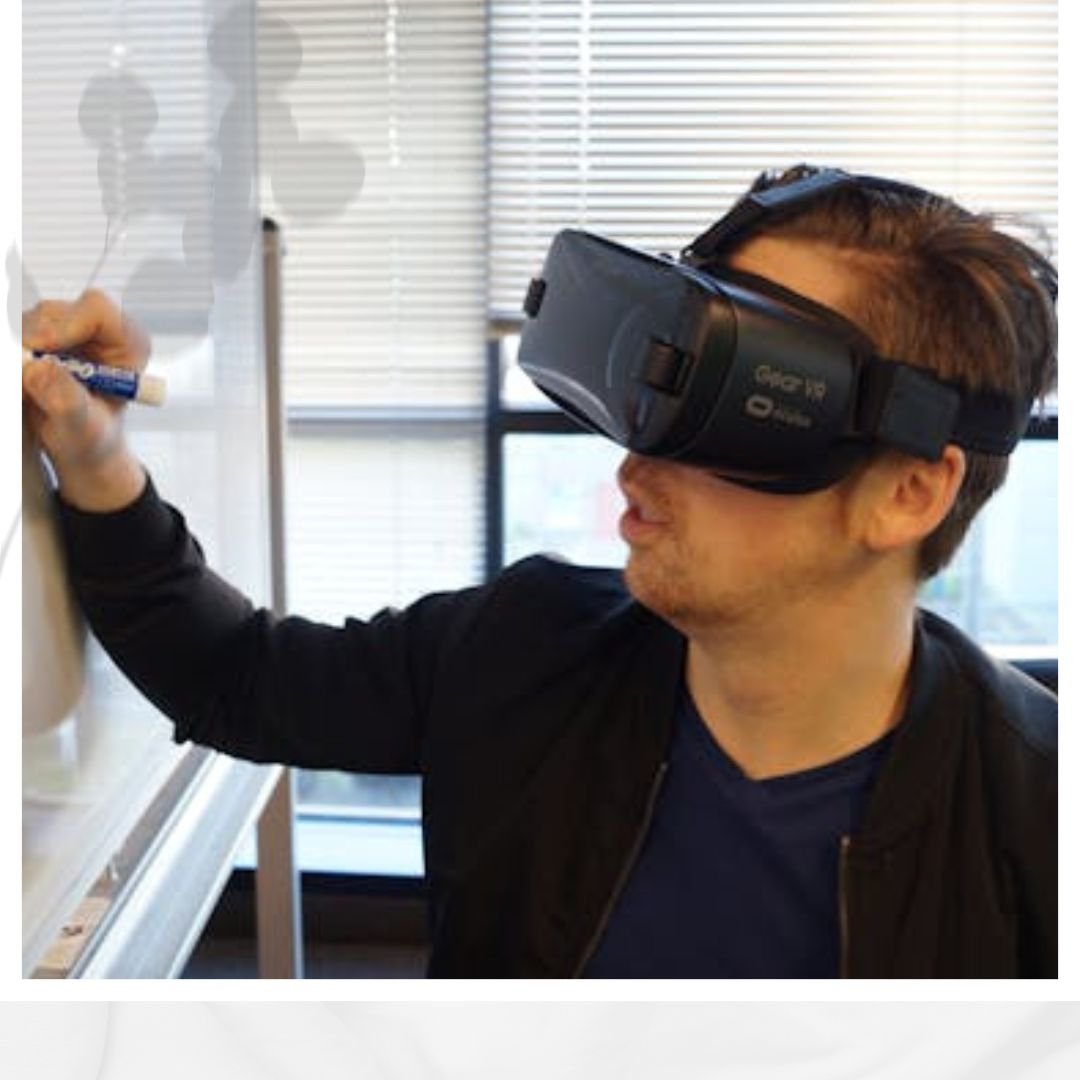Virtual Reality (VR) has already made waves in industries like gaming and entertainment, but its potential in education—especially in finance and accounting—remains a largely untapped opportunity. VR provides a unique, immersive learning experience that could revolutionize the way finance professionals are trained, offering interactive environments that simulate real-world scenarios. Here’s how it works and why it’s a game-changer for tomorrow’s business leaders:
1. Immersive Learning in Complex Scenarios
VR allows learners to engage with complex financial scenarios in a risk-free environment. For example, they can simulate handling real-world financial crises, market volatility, or corporate restructurings. This gives learners the ability to experiment with decision-making in real time and observe the outcomes without any actual financial risk. By stepping into a virtual boardroom or trading floor, students can experience firsthand the pressures and challenges faced by business leaders.
2. Simulating Financial Statement Preparation and Analysis
Rather than passively learning from textbooks, VR could allow students to prepare and analyze financial statements in a fully interactive environment. They can work with 3D models of balance sheets, income statements, and cash flow statements, identifying key metrics and trends. By moving through different time periods, they can visually track a company’s financial performance and simulate the impact of various business decisions—such as issuing debt or launching a new product—on the financial statements.
3. Interactive Case Studies and Real-Life Scenarios
In traditional accounting and finance education, case studies are typically presented in paper format. VR can bring these case studies to life by allowing users to “enter” the business environment being studied. Learners can interact with the environment—whether it’s a factory, retail store, or financial services firm—and gather financial data, analyze operational activities, and make strategic decisions based on what they observe. This could help bridge the gap between theory and practice in a highly engaging way.
4. Virtual Collaboration for Global Finance Teams
For businesses that operate across borders, VR can serve as a collaborative tool for finance teams based in different locations. Imagine virtual meetings where finance professionals from around the world come together in a shared space to analyze data, present financial reports, or brainstorm strategies in real-time. By removing geographic barriers, VR fosters a more global approach to finance training and operations.
5. Real-Time Financial Market Simulations
Finance students often learn about market dynamics through hypothetical scenarios or limited simulations. With VR, they could step onto a virtual trading floor, see market movements in real time, and make decisions as events unfold. This type of experiential learning can help learners better understand the fast-paced nature of financial markets, including the emotional aspects of investing, trading, and risk management.
6. Training in Risk Management and Compliance
VR offers an effective platform for training finance professionals in risk management and compliance. Simulated environments can replicate high-pressure situations, such as a sudden market crash or regulatory investigation, allowing learners to practice their responses and problem-solving skills. Additionally, they can experience simulated audits, learning how to comply with regulatory requirements by interacting with virtual auditors or overseeing a mock audit process themselves.
7. Developing Leadership and Soft Skills
While technical financial knowledge is crucial, leadership and communication skills are equally important for business leaders. VR can create scenarios where learners practice soft skills, such as negotiating a merger, presenting financial reports to a board of directors, or managing a team through financial turbulence. By allowing users to interact with AI-driven characters or other learners, VR helps improve critical interpersonal skills in a dynamic, realistic setting.
8. Enhanced Engagement and Retention
One of the challenges of traditional financial education is keeping learners engaged in complex, sometimes abstract, concepts. VR offers a highly engaging, multi-sensory experience that can enhance knowledge retention. Studies show that immersive experiences like VR can improve focus and memory, helping learners better retain and apply the knowledge they gain.
9. Customizable and Scalable Training Programs
VR platforms can be customized to cater to specific business needs. Whether it’s training a group of CFOs in corporate finance or introducing new employees to the basics of accounting, VR programs can be designed to meet different levels of expertise and learning objectives. Additionally, VR training is scalable, making it a cost-effective solution for large organizations looking to train employees across multiple locations.
10. Gamification of Finance Training
The integration of gamification into VR finance training can also be a powerful motivator. By turning financial tasks and challenges into a game, where learners can earn rewards, badges, or progress through levels, VR makes learning more engaging and competitive. This element of fun can help students remain motivated while they develop critical financial skills.
Future Prospects and Implications
As technology advances, the potential for VR in financial training will continue to grow. Businesses could use VR for onboarding new employees, upskilling existing teams, and even attracting new talent with innovative learning tools. Universities and financial institutions can also partner to develop cutting-edge VR training programs that appeal to a new generation of learners who thrive in interactive, tech-driven environments.
By leveraging VR, finance professionals can not only sharpen their technical and decision-making skills but also gain a competitive edge in the fast-evolving world of business. This technology can transform the way individuals and teams approach finance and accounting, preparing them to face real-world challenges with greater confidence and expertise.
Want to follow us:
Learn more at AccountingHound.com


